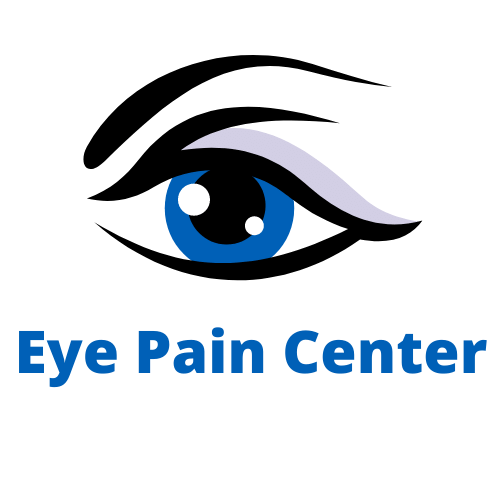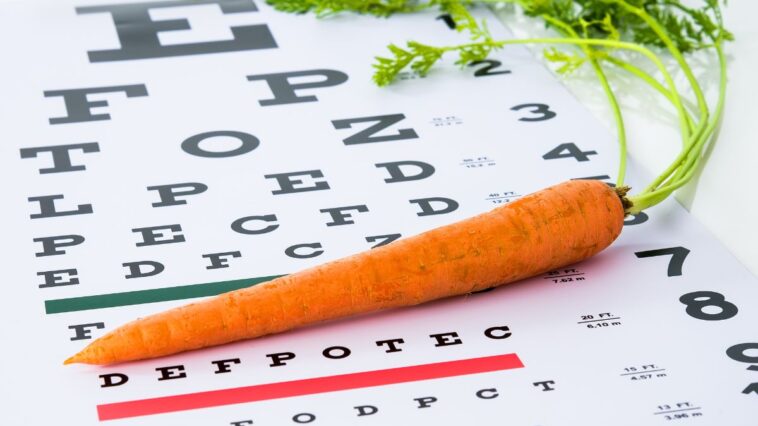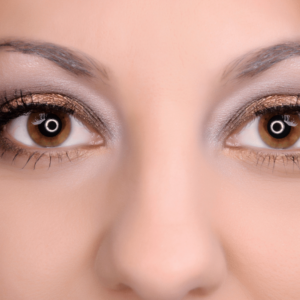Many common eye diseases can affect a person’s vision and overall eye health. Some of the most common include:
- Glaucoma is an eye condition that can result in blindness if not treated in time. It is caused by damage to the optic nerve, usually due to too much pressure on the eye. If diagnosed early, glaucoma can be managed with medication, laser surgery, or other treatments to prevent further damage and maintain vision.
- A cataract is an opacity in the eye’s crystalline lens that impairs vision. It occurs when the usually transparent lens of the eye becomes cloudy, leading to a decrease in sharpness of vision and increased sensitivity to bright light. Cataracts can often be treated with surgery, helping to restore clear vision.
- Macular degeneration is a chronic eye condition in which the macula, the part of the eye responsible for sharp, central vision, becomes damaged. The condition progresses over time and can lead to permanent vision loss if left untreated.
- Diabetic retinopathy is a severe complication of diabetes that affects the eyes. It occurs when the blood vessels in the retina become damaged, leading to impaired vision or even blindness. Early detection and treatment are essential to control its development and associated chances of complete vision loss.
- Dry Eye Syndrome, or DES, is an eye condition in which the eyes produce insufficient tears or evaporate too quickly. This can lead to temporary eye discomfort, redness, and blurred vision. Treatment for DES usually involves lubricating drops and other methods of tear stimulation.
- Conjunctivitis is an inflammation of the conjunctiva – the thin, clear membrane covering the white part of the eye and inner eyelids. Pink eye is often caused by an infection, making it contagious and potentially leading to further complications if not treated promptly.
It’s vital to have regular eye exams to detect these diseases early, as many of them can be treated or managed more effectively if caught early.
10 Nutrients That Will Optimize Your Eye Healing
If you’re looking for ways to improve and optimize your eye health, then you should consider adding these 10 nutrients to your diet. These essential nutrients can help you maintain good vision, reduce the risk of certain eye diseases, and maintain optimal eye function. They include :
Vitamin A
Vitamin A is a nutrient essential for maintaining the eyes’ health. It is vital for the functioning of the retina and the cornea and is necessary for night vision.
Vitamin A is a crucial dietary component for the human body. This fat-soluble vitamin can be found in many everyday foods, such as carrots, sweet potatoes, pumpkins, leafy greens, and eggs.
The body can store vitamin A for later use; however, a deficiency may take some time to develop even when not enough is present in the diet.
Vitamin A deficiency can lead to several eye problems, including night blindness, dry eyes, and xerophthalmia (a condition characterized by dryness and inflammation of the cornea and conjunctiva).
Vitamin C
Vitamin C is an essential nutrient with many vital functions in the body. Also known as ascorbic acid, it is crucial for eye health and vision. It is an antioxidant that helps protect the eyes from free radicals, which can cause damage to the cells and contribute to the development of eye diseases such as cataracts and macular degeneration.
Consuming foods high in vitamin C is vital for your health. Vitamin C is an essential nutrient found in citrus fruits such as oranges, lemons, and limes, as well as other fruits and vegetables like strawberries, kiwi, bell peppers, and spinach. Incorporating these foods into your diet can help ensure you get enough of this vital vitamin.
Vitamin C is an essential water-soluble vitamin that the body cannot store. Vitamin C deficiency can have serious consequences, such as dry eyes, night blindness, and even blindness. Ensuring an adequate intake of this vitamin is therefore essential for good health.
However, getting too much Vitamin C can cause adverse side effects such as diarrhea and stomach upset, so it’s essential to consult a healthcare professional before taking supplements. The best way to get your Vitamin C is to make sure you eat various fruits and vegetables.
Vitamin E
Vitamin E is a fat-soluble vitamin that plays a crucial role in maintaining eye health. It is an antioxidant that helps protect the eyes from free radicals, which can cause damage to the cells and contribute to the development of eye diseases such as cataracts and macular degeneration.
Vitamin E also helps maintain healthy cell membranes essential for proper eye function.
Sources of Vitamin E include nuts and seeds such as almonds, hazelnuts, sunflower seeds, leafy green vegetables like spinach or kale, avocados, and sweet potatoes.
A deficiency of Vitamin E is rare; a lack of vitamin E can lead to vision problems, muscle weakness, coordination issues, and other symptoms. Supplementation with Vitamin E may benefit people who don’t get enough from their diet.
Zinc
Zinc is a mineral that plays a crucial role in maintaining the eyes’ health. It is essential to form melanin, which helps protect the eyes from UV light and supports healthy vision. Zinc also helps in the metabolism of Vitamin A, which is essential for the proper function of the retina.
Zinc-rich foods include oysters, beef, pork, chicken, beans, nuts, and whole grains.
Zinc deficiency is rare but can cause vision problems, such as night blindness and other symptoms. Zinc deficiency can also cause poor wound healing, a weakened immune system, and loss of taste or smell.
Get your zinc from a balanced diet that includes a variety of foods. It’s also essential to consult a healthcare professional before taking zinc supplements, as high doses can cause nausea, vomiting, and other side effects.
Lutein and zeaxanthin
Lutein and zeaxanthin are carotenoids, a phytochemical type important for maintaining healthy eyes. They are found in high concentrations in the macula, the part of the eye responsible for sharp, central vision. Lutein and zeaxanthin act as antioxidants, protecting the eyes from free radicals and helping to reduce the risk of age-related eye diseases such as macular degeneration and cataracts.
Foods rich in Lutein and zeaxanthin include leafy greens like kale, spinach, and collard greens, as well as yellow and orange fruits and vegetables such as corn, pumpkin, and egg yolks.
Lutein and zeaxanthin deficiency is rare as they are found in many fruits and vegetables. However, low levels of these carotenoids may increase the risk of age-related eye diseases.
It is recommended that Lutein and Zeaxanthin be obtained from natural sources such as food sources; however, supplements may also be beneficial to certain individuals. Consulting with a healthcare professional before taking supplements is advised.
Omega-3 Fatty Acids
Omega-3 fatty acids are essential for maintaining healthy eye function. They are a type of polyunsaturated fatty acid that plays a crucial role in the development and function of the retina. They also have anti-inflammatory properties, which may help protect the eyes from diseases such as macular degeneration and dry eyes.
Foods rich in Omega-3 fatty acids include fatty fish like salmon, mackerel, and tuna, flaxseeds, chia seeds, and walnuts.
Omega-3 fatty acid deficiency is rare but can cause dry eyes and other symptoms.
Omega-3 fatty can be acquired through food sources such as fatty fish, eggs, walnuts, and flaxseeds or dietary supplements.
N-acetyl-cysteine
N-acetyl-cysteine (NAC) is a form of the amino acid cysteine and is an antioxidant. N-acetyl-cysteine is effective in preventing cataracts. It works by reducing the levels of reactive oxygen species (ROS) in the lens of the eye, which can cause damage to the lens proteins and lead to cataract formation.
N-acetyl-cysteine is not found in food but can be taken as a supplement. It is also used as a medication to treat acetaminophen overdose and to break up mucus in the lungs.
N-acetyl-cysteine is considered safe when taken as a supplement. Still, as it can interact with other medications, you may be taking; it’s essential to consult a healthcare professional before taking it.
It’s important to note that N-acetyl-cysteine is not a substitute for other cataract treatments, such as cataract surgery. It should be used as an addition to a healthy lifestyle and a balanced diet.
Quercetin
Quercetin is a flavonoid type of phytochemical found in many fruits, vegetables, and flowers. It has antioxidant and anti-inflammatory properties and is effective in preventing cataracts and macular degeneration.
Foods that are rich in quercetin include capers, onions, and tea.
Quercetin deficiency is rare as it is found in many fruits and vegetables.
Certain fruits and vegetables are excellent sources of quercetin. Still, it is essential to speak with a healthcare professional before consuming high doses of quercetin as it may cause adverse side effects such as stomach upset, headaches, and allergies.
Bilberry
Bilberry is a small, blueberry-like fruit that is high in antioxidants and is effective in preventing cataracts and macular degeneration. Bilberry contains anthocyanins, a group of compounds with anti-inflammatory and antioxidant properties that help conserve the eyes from damage caused by free radicals.
Bilberries can be found in supplement form, as well as in jams, jellies, and other food items.
Bilberry deficiency is rare, as it is found in supplement form.
You must consult a healthcare professional before taking bilberry supplements, as high doses may cause side effects such as stomach upset, diarrhea, and allergic reactions. Bilberry supplements should not be used as a substitute for other treatments for eye diseases.
Grapeseed extract
Grapeseed extract is a powerful antioxidant derived from the grapes’ seeds. It is effective in preventing cataracts and macular degeneration. Grapeseed extract contains compounds such as proanthocyanidins, flavonoids, and polyphenols which have antioxidant properties that help to protect the eyes from damage caused by free radicals.
Grapeseed extract can be found in the supplement, skincare, and personal care products.
Grapeseed extract deficiency is rare, as it is found in supplement form.
It’s best to consult your healthcare professional before taking grapeseed extract supplements, as high doses may cause side effects such as stomach upset, diarrhea, and allergic reactions. Grapeseed extract supplements should not be used as a substitute for other treatments for eye diseases.
Summary
It is important to note that these nutrients benefit eye health, but it’s best to get them from a balanced diet rather than supplements. Also, consult with a healthcare professional before taking any supplements.






